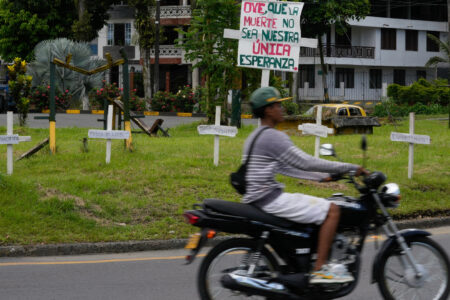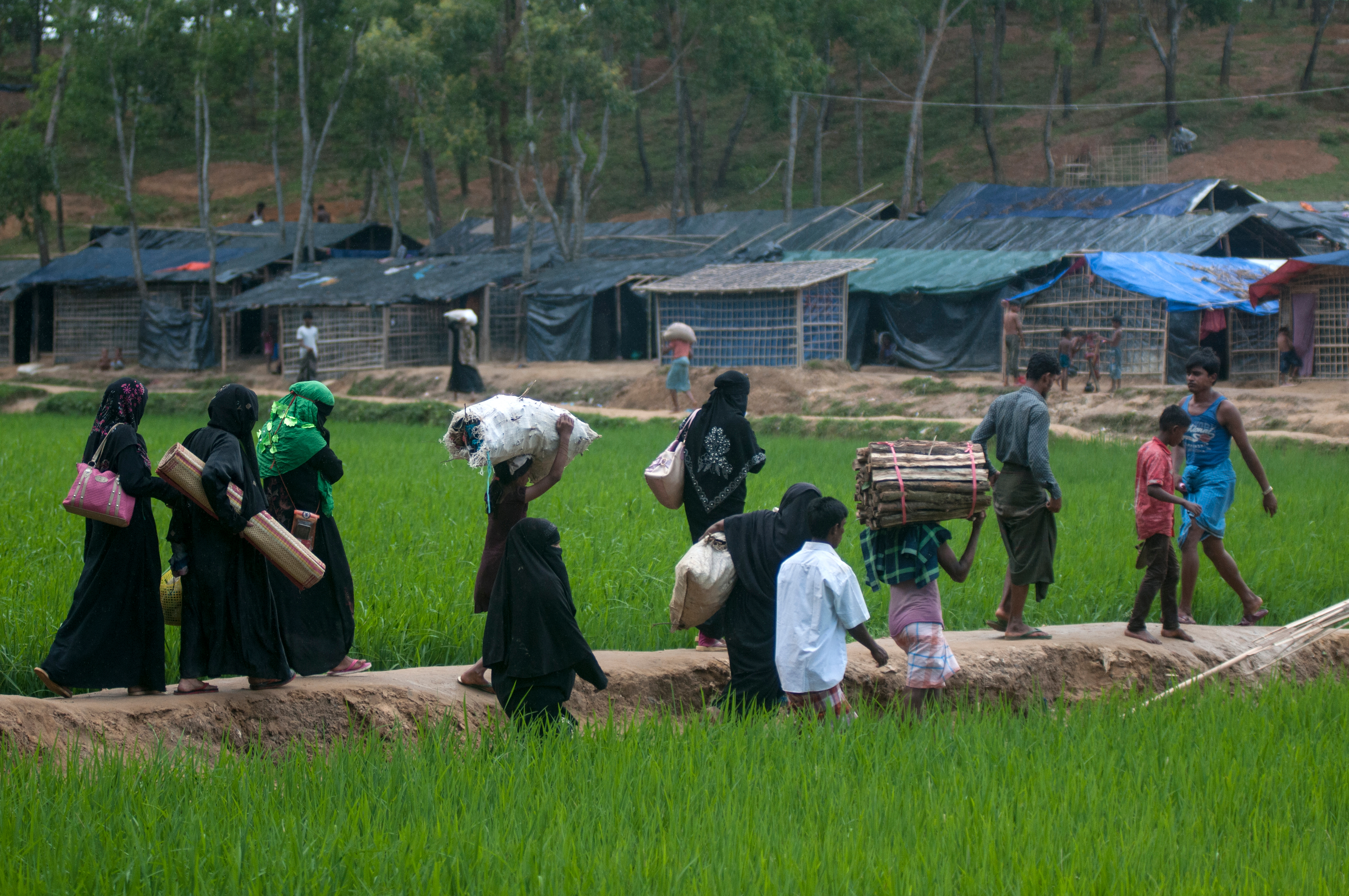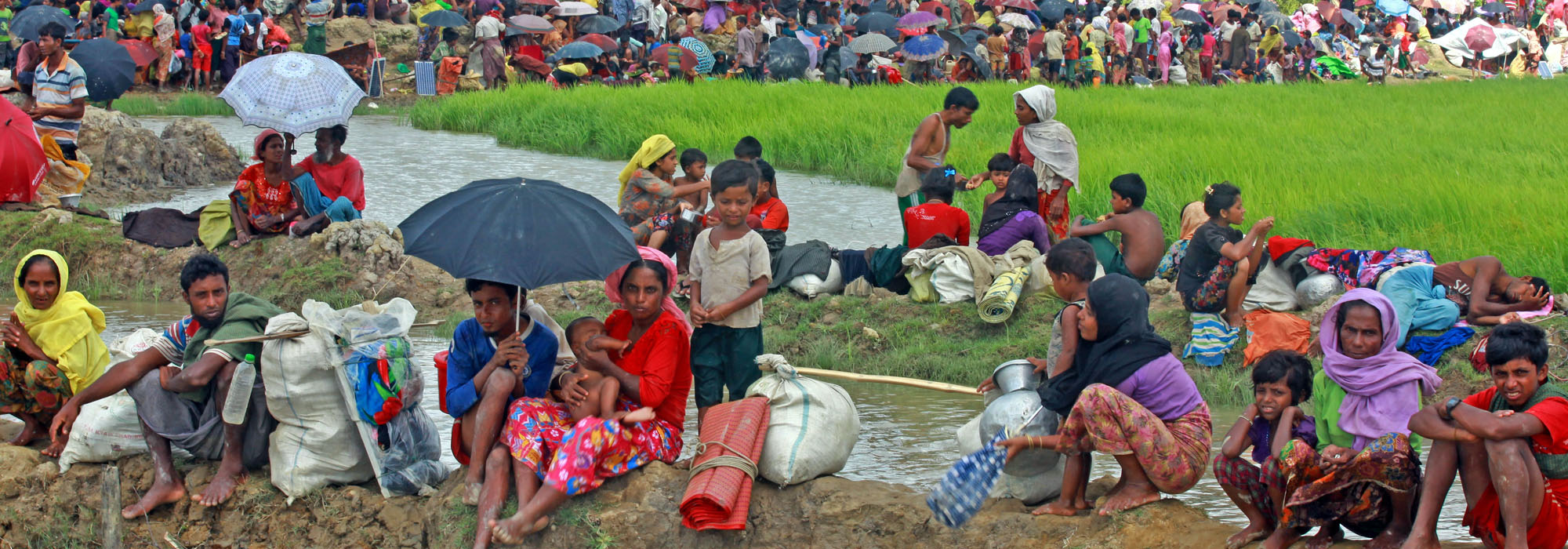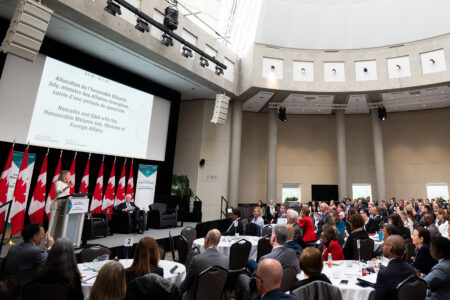
The global response to the Rohingya crisis has now moved to the judicial arena. Back in June 2019, many politicians and NGOs were calling for Canada to spearhead the international legal actions to hold Myanmar accountable for the genocide of the Rohingya people. In the end, the West African nation of the Gambia took it upon itself last November to file a genocide case in front of the International Court of Justice (ICJ), the principal judicial organ of the United Nations.
The Gambia should be applauded for its initiative and political courage, but there remains a role to play for Canada, which should avail itself of the right to intervene in the next phase of proceedings, which are due to unfold over the next several years. Canada’s intervention at the World Court would send an important signal of universal solidarity with the Rohingyas and could also be an opportunity to advance its feminist foreign policy.
Joining forces
While the historic case officially pits the Gambia against Myanmar, the procedure at the ICJ allows for third states to intervene in the proceedings to make their views known to the Court. To be more precise, a state like Canada has a right to intervene in an ongoing case when it involves a multilateral convention to which it is also a party – the logic being that the Court’s interpretation will have a practical impact on all other states party to the convention, not just the two main protagonists.
This is precisely the case with the proceeding regarding the Rohingya crisis. The Gambia is accusing Myanmar of violating the 1948 Genocide Convention, an important human rights treaty to which Canada is also a party (along with 151 other states).
An important symbolic value
Interventions at the ICJ can play an important role by protecting the interest of states and offering them a way to support desirable actions launched by others. But the decision to intervene, just like bringing a case, is a serious act that is not taken lightly, especially for cases involving genocide. There are nevertheless preliminary signals that point to Canada’s willingness to participate and the importance of that contribution.
Last December, Canada said publicly that it and the Netherlands “welcome the Gambia’s application before the International Court of Justice against Myanmar” and, most importantly, expressed their intention to “jointly explore all options to support and assist the Gambia in these efforts.” That month, the Gambia’s Minister of Justice specifically highlighted the backing of “supportive States like Canada and the Netherlands” during his speech to the Court.
But Canada is not the only concerned state. In February, the Government of the Maldives announced its intention to intervene to support the efforts “to seek accountability for the acts of genocide committed against the Rohingya.” This intervention is to be welcomed, but it doesn’t render Canada’s involvement redundant.
The case so far has been spearheaded by the Muslim world, with the Gambia acting at the request of the Organization of Islamic Cooperation, of which the Maldives is also a member. Canada’s involvement would thus send a powerful signal that this case is not just of interest to the Muslim world – genocide is a matter of concern to the international community as a whole. A coalition of Muslim and Western states would thus have an important symbolic value. It could also help gather worldwide support to ensure compliance with any measures of reparation that might be ordered in the final judgment.
Advancing Canada feminist foreign policy
Since taking office in 2015, Justin Trudeau’s government has made several major announcements demonstrating its commitment to a feminist foreign policy agenda, including the new Feminist International Assistance Policy. Intervention at the ICJ is yet another opportunity for Canada to advance this policy by emphasising the importance of gender constructs under the Genocide Convention.
States intervening in ICJ proceedings are not simply expressing support for one of the parties, they are expected to put forward their specific legal interpretation of the convention at issue in the proceedings. As such, an intervention that merely replicates the interpretation already advanced by other parties would be devoid of interest. But this is precisely where Canada could stand out, examining the concept of genocide through a gendered lens.
As recently highlighted in the Final Report of the National Inquiry into Missing and Murdered Indigenous Women and Girls, traditional interpretations given to the definition of genocide “fail to address crucial, gendered facets” of the crime. This could be remedied by a Canadian intervention specifically focusing on that aspect. It could prove particularly important in this case given the evidence of widespread sexual violence against Rohingya women. It would also complement the government’s gender-responsive humanitarian approach to the Rohingya crisis.

Addressing potential hurdles
There are, of course, potential drawbacks for Canada to consider. Most obviously, the intervention might slow down and complicate the case. If Myanmar objects to the intervention, it could generate additional proceedings solely for the purpose of deciding on the right of intervention, thus postponing the consideration of the merits. If there are too many interveners, there is also the risk of undermining the overall case by presenting contradicting submissions.
Fortunately, there are ways to minimize these problems. ICJ proceedings are already notoriously slow, but the Rohingya people could benefit from interim measures of protection until the decision on the merits. The Court can order these binding measures to avoid irreparable consequences arising from actions of the parties during the period (often years) leading up to a final decision. This tool has already been used by the Gambia. Last January, in a very significant development, the Court unanimously ordered Myanmar to “take all measures within its power” to prevent acts of genocide and preserve evidence of alleged crimes against the Rohingya. The procedure could be used again with added focus on specific actions if the need arises. As with all ICJ decisions, there is unfortunately no international police to guarantee enforcement, but court orders usually generate intense public scrutiny, and states can resort to a variety of lawful actions to sanction violations.
As for the multiplicity of voices, it must be remembered that Canada would be aligned in interest with the Gambia and the Maldives. Canada is already offering its assistance, and a formal intervention would no doubt lead to even more intense cooperation where the parties could coordinate their strategy and reduce the risk of confusion.
Canada has been a strong and consistent advocate for accountability in Myanmar since the onset of this crisis in August 2017. It was the first country in the world to officially recognize the violence perpetrated against the Rohingya as genocide. Canada also exercised a leadership role through the advocacy efforts of Bob Rae, Prime Minister Trudeau’s Special Envoy to Myanmar. In that capacity, he ensured a Canadian presence at the ICJ by attending the hearing on interim measures last December and speaking at various side events. But Canada should not be content to watch from the sidelines. Instead, in keeping with its proactive policy, it has the opportunity to intervene at the World Court and play a central role in bringing justice to the Rohingyas.
Photo: Rohingyas in the Cox’s Bazar district of Bangladesh in October 2017, fleeing persecution in Myanmar. Shutterstock.com, by Sk Hasan Ali








